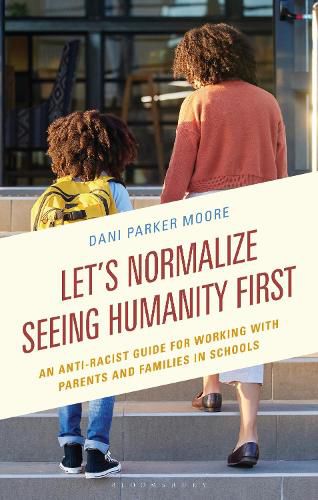Readings Newsletter
Become a Readings Member to make your shopping experience even easier.
Sign in or sign up for free!
You’re not far away from qualifying for FREE standard shipping within Australia
You’ve qualified for FREE standard shipping within Australia
The cart is loading…






Let's Normalize Seeing Humanity First: An Anti-Racist Guide for Working with Parents and Families in Schools serves as a critical guide for educators seeking to develop anti-racist practices that center on the humanity of students and their families. Too often, schools view parent engagement through a deficit lens, failing to recognize the cultural wealth and resilience within communities of color. Drawing from historical contexts, national uprisings, and the renewed urgency for justice, this book explores how educators can move beyond traditional notions of "parent involvement" and instead foster authentic partnerships with families. Through a framework of anti-racist praxis, the book challenges educators to interrogate their biases, recognize systemic barriers, and build meaningful relationships that empower students and their caregivers. Essential for teachers, administrators, afterschool workers and school leaders, this book offers a necessary roadmap for creating educational spaces rooted in justice, equity, and collective liberation.
$9.00 standard shipping within Australia
FREE standard shipping within Australia for orders over $100.00
Express & International shipping calculated at checkout
Stock availability can be subject to change without notice. We recommend calling the shop or contacting our online team to check availability of low stock items. Please see our Shopping Online page for more details.
Let's Normalize Seeing Humanity First: An Anti-Racist Guide for Working with Parents and Families in Schools serves as a critical guide for educators seeking to develop anti-racist practices that center on the humanity of students and their families. Too often, schools view parent engagement through a deficit lens, failing to recognize the cultural wealth and resilience within communities of color. Drawing from historical contexts, national uprisings, and the renewed urgency for justice, this book explores how educators can move beyond traditional notions of "parent involvement" and instead foster authentic partnerships with families. Through a framework of anti-racist praxis, the book challenges educators to interrogate their biases, recognize systemic barriers, and build meaningful relationships that empower students and their caregivers. Essential for teachers, administrators, afterschool workers and school leaders, this book offers a necessary roadmap for creating educational spaces rooted in justice, equity, and collective liberation.